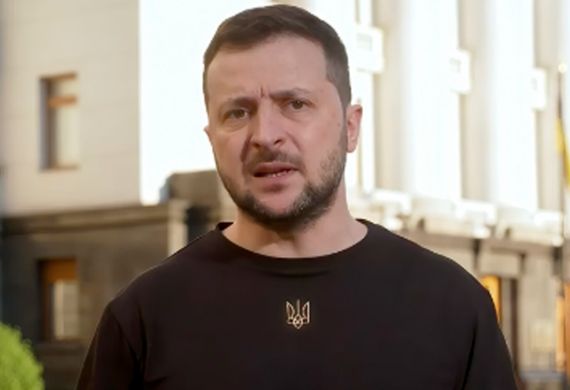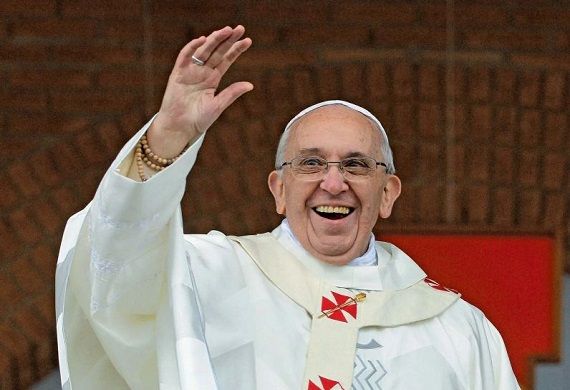Zelenskyy Reports Progress on US Rare Minerals Deal
By Global Leaders Insights Team | Feb 24, 2025

President Volodymyr Zelenskyy said on Sunday that a controversial Trump administration proposal to grant the U.S. $500 billion in profits from Ukraine's rare earth minerals as compensation for wartime aid has been withdrawn, suggesting a fairer agreement is being negotiated.
Zelenskyy had previously rejected a U.S. draft agreement on exploiting Ukraine's valuable minerals, including lithium used in aerospace, defense, and nuclear industries, because it lacked security guarantees and included the $500 billion compensation demand.
"The $500 billion issue is no longer on the table," Zelenskyy stated during a news conference at a forum in Kyiv commemorating the third anniversary of Russia's full-scale invasion of Ukraine.
The Ukrainian president added that viewing aid as a debt to be repaid would open a "Pandora's box," setting a precedent where Kyiv would be expected to reimburse all its supporters.
"We do not recognize the debt," Zelenskyy said. "It will not be in the final format of the agreement."
No additional details were provided regarding the status of the negotiations. Ukraine has emphasized the need for security guarantees to prevent any future Russian aggression.
Trump's special envoy to the Middle East, Steve Witkoff, told CNN's State of the Union that he anticipates a deal this week that would allow the U.S. to take a larger role in tapping into Ukraine's mineral resources.
Treasury Secretary Scott Bessent described the administration's minerals plan as a way to establish a U.S.-Ukraine partnership, calling it a "win-win" situation.
"We make money if the Ukrainian people make money," Bessent told Fox News Channel's Sunday Morning Futures program.
Zelenskyy's chief of staff, Andrii Yermak, along with Economic Minister Yuliia Svyrydenko, left the Kyiv forum early for what Yermak described as discussions with U.S. officials regarding a potential deal.
Later that day, Yermak shared on social media that he had spoken with U.S. officials, including Bessent and Trump's national security adviser Mike Walz, describing the conversation as "constructive."
"We are making progress ," Yermak wrote. "The USA is our partner and we are grateful to the American people."
In response to a reporter's question about whether he would relinquish the presidency for peace in Ukraine, Zelenskyy said he would, if it meant a lasting end to the conflict under NATO's security umbrella.
"If to achieve peace, you really need me to give up my post, I'm ready," he said. "I can trade it for NATO."
His remark seemed to address recent proposals by President Donald Trump and Russian President Vladimir Putin, suggesting that elections should proceed despite Ukrainian laws banning them during martial law.
Ukraine is concerned by Trump's shift in policy towards Putin. His recent engagement with Russian officials and decision to restore diplomatic ties and economic cooperation with Moscow have represented a stark reversal in U.S. policy, unsettling leaders in Ukraine and throughout Europe.
Zelenskyy has expressed concerns that Trump's push for a quick resolution could lead to Ukraine losing territory and becoming vulnerable to future Russian aggression. U.S. officials, however, have stated that the Ukrainian leader would be included if and when peace talks begin.
Trump sparked alarm and anger in Ukraine this week by suggesting that Kyiv had started the war and labeling Zelenskyy a "dictator" for not holding elections.
On Sunday, Russian Deputy Foreign Minister Sergei Ryabkov told the state-run TASS news agency that Moscow and Washington would resume bilateral talks at the end of next week.
Ryabkov noted that the discussions would involve senior officials from both countries' foreign ministries, adding that "quite a lot" of communication was already taking place between Russia and the U.S.
European leaders are gearing up for talks with Zelenskyy and Trump. European Union Commission President Ursula von der Leyen and other senior EU officials were en route to Kyiv on Monday for discussions with Ukraine’s government, as Europe scrambles to respond to the Trump administration’s shifting U.S. policy and ensure continued support for Kyiv if American aid is cut.
The U.K. announced it would impose new sanctions on Russia on Monday, calling them the largest package since the war's early days. Foreign Secretary David Lammy stated the sanctions would target Russia's "military machine" and reduce revenues fueling the destruction in Ukraine.
British Prime Minister Keir Starmer and French President Emmanuel Macron are both set to visit Washington this week as Europe seeks to persuade Trump not to abandon Ukraine in favor of a peace deal.
Russia carried out a record number of drone strikes ahead of the war anniversary. On Sunday, Zelenskyy reported that Russia launched 267 drones into Ukraine overnight, the largest single attack of the war. Ukraine's air force intercepted 138 drones across 13 regions, with 119 more destroyed in flight.
Three ballistic missiles were also fired, with one strike in Kryvyi Rih killing one person, according to local officials.
In response to the attacks, Ukraine's Foreign Minister Andrii Sybiha posted on social media: "No one should trust Putin’s words. Watch his actions instead."
Meanwhile, New Zealand imposed further sanctions on 52 individuals and entities linked to Russia’s military and energy sectors, North Korea’s support for Russia's war effort, and the forced relocation of Ukrainian children. Since March 2022, New Zealand has sanctioned over 1,800 individuals and entities.
Additionally, New Zealand pledged an extra 3 million New Zealand dollars ($1.7 million) to the World Bank-administered fund for Ukraine, according to Foreign Minister Winston Peters.

.jpg)
.jpg)

